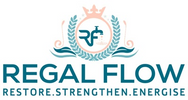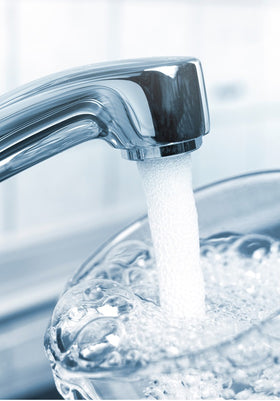
Water Softeners: Everything You Need To Know
Understanding Hard Water: What Is It and How Does It Affect Your Home?
Are you tired of dealing with hard water and Limescale in your home? Do you want to improve the quality of your tap water?
Look no further than the transformative power of a water softener!
In this ultimate guide, we will dive deep into the workings of a water softener and how it can revolutionise your home's water quality. Imagine saying goodbye to mineral build-up on your faucets and fixtures, spotted glasses, and dry skin caused by hard water. With a water softener, you can eliminate these issues and enjoy clean, soft water throughout your home.
But how does a water softener actually work? In this guide, we will provide a comprehensive explanation of the technology behind water softeners, including how they remove hard minerals like calcium and magnesium from your water supply. We will also explore the different types of water softeners available, their benefits, and how to choose the right one for your needs.
The information below will help you gain a thorough understanding of water softeners and their impact on your home's water quality. Get ready to transform your water and improve your daily life.
Firstly, What is Hard Water?
Water deemed hard is characterised by a high level of dissolved minerals, notably calcium and magnesium ions. These minerals dissolve into the water as it moves through rocks and soil, gathering mineral content throughout its passage. The hardness of water is determined by calculating the quantity of minerals present per gallon, milligram per litre or parts per million (ppm) within the water.

What Damage Do They Cause
Calcium: usually ranks as the most abundant mineral, known for its tendency to create scale deposits within pipes, appliances, and fixtures.
Magnesium: typically found together with calcium in hard water, contributes to the formation of scale and can impact the functionality of soaps and detergents.


What Is a Water Softener and How Does It Work?
A water softener is a device that is designed to remove hard minerals, such as calcium and magnesium, from your home's water supply. These minerals are responsible for a variety of issues, including mineral buildup on fixtures, spotty dishes, and dry skin. By removing these minerals, a water softener can transform your home's water quality, making it softer, cleaner, and more enjoyable to use.
The core of a water softener's functionality lies in the ion exchange process. Inside the water softener, there is a tank filled with resin beads that are coated with sodium ions. As hard water passes through the tank, the calcium and magnesium ions in the water are attracted to the resin beads and are exchanged for the sodium ions. This process effectively removes the hard minerals from the water, resulting in soft water that is free of these troublesome minerals.
To maintain the water softener's effectiveness, the resin beads need to be regularly regenerated. This process involves flushing the tank with a salt solution, which replenishes the sodium ions on the resin beads and flushes out the collected calcium and magnesium ions. This regeneration cycle is typically triggered automatically by the water softener's control system, ensuring that the device continues to function at peak efficiency.
Common Water Quality Issues and How a Water Softener Can Address Them
One of the most common water quality issues caused by hard water is the buildup of mineral deposits on fixtures, pipes, and appliances. These deposits can lead to reduced water flow, clogged showerheads, and even damage to your plumbing system over time. By removing the calcium and magnesium from the water, a water softener can prevent this buildup, keeping your home's water system running smoothly and efficiently.
Another common problem associated with hard water is the difficulty in achieving a thorough clean when washing clothes or dishes. The hard minerals in the water can interfere with the effectiveness of soaps and detergents, leaving behind a residue that can make fabrics feel stiff and dishes appear spotty. A water softener addresses this issue by softening the water, allowing the cleaning products to work more effectively and leaving your laundry and dishes sparkling clean.
Hard water can also have a negative impact on your skin and hair. The minerals in the water can strip away natural oils, leading to dry, itchy skin and dull, brittle hair. By using a water softener, you can enjoy softer, more hydrated skin and healthier, more manageable hair, improving your overall personal hygiene and self-care routine.


Factors to Consider When Choosing a Water Softener for Your Home
When selecting a water softener for your home, there are several important factors to consider to ensure that you choose the right device for your needs. One of the primary factors is the size of your home and the amount of water your household uses on a daily basis. Water softeners are typically rated by the number of grains of hardness they can remove per gallon of water, so it's essential to choose a model that can handle the water usage in your home.
Additionally, you'll want to consider the cost of the water softener, both in terms of the initial purchase price and the ongoing maintenance and operating costs. Salt-based softeners, for example, will require a regular supply of salt, which can add to the long-term cost of ownership. You'll also want to factor in the energy efficiency of the water softener, as some models may use more electricity than others.
Most homes in the UK come from one of the major water providers however if your supply is from or a private supply you will need to have your water tested to determine the specific mineral content and hardness level, as this will help you select the most appropriate water softener for your needs.
Installation and Maintenance of a Water Softener
Installing a water softener can be a complex process, and it's generally recommended to have a professional plumber or water treatment specialist handle the installation. This ensures that the softener is properly integrated into your home's plumbing system and that it is set up to operate at peak efficiency.
Once the water softener is installed, it's important to follow the manufacturer's instructions for maintaining the device. This typically includes regularly checking and refilling the salt tank, as well as performing periodic regeneration cycles to keep the resin beads clean and effective. Depending on the type of water softener you have, you may also need to replace the resin beads or other components over time.
Proper maintenance is crucial for ensuring that your water softener continues to function effectively and efficiently. Neglecting maintenance can lead to a buildup of mineral deposits, reduced water flow, and even damage to the softener itself. By following the manufacturer's recommendations and staying on top of regular maintenance tasks, you can help extend the lifespan of your water softener and ensure that it continues to provide high-quality, soft water for your home.
Optimising Your Water Softener for Best Results
To get the most out of your water softener, there are a few key tips to keep in mind. First and foremost, it's important to ensure that the water softener is properly sized for your home's water usage and hardness level. Choosing a model that is too small or too large for your needs can impact its effectiveness and efficiency.
Another important tip is to regularly check and maintain the salt levels in the softener's brine tank. Low salt levels can prevent the softener from effectively regenerating the resin beads, leading to a decrease in performance. Be sure to follow the manufacturer's recommendations for salt type and refill frequency to keep your softener running at its best.
Additionally, it's a good idea to periodically test your home's water quality to ensure that the softener is still effectively removing the hard minerals. Over time, the resin beads may become depleted or the softener's settings may need to be adjusted to account for changes in your water supply. By monitoring your water quality and making any necessary adjustments, you can help maximise the long-term effectiveness of your water softener.

Alternatives to Water Softeners for Improving Water Quality
While water softeners are a highly effective solution for addressing hard water issues, they are not the only option for improving your home's water quality. One alternative is the use of a whole-house water filter, which can remove a variety of contaminants, including sediment, chlorine, and organic matter, without necessarily addressing the hardness of the water.
Another alternative is the installation of a reverse osmosis (RO) system. RO systems use a semi-permeable membrane to remove a wide range of contaminants, including dissolved minerals, heavy metals, and even microorganisms. While RO systems are generally more expensive than water softeners, they can provide a higher level of water purification and are particularly useful for households with concerns about water quality beyond just hardness.
Additionally, there are various point-of-use water treatment devices, such as faucet-mounted filters or under-sink filtration systems, that can be used to improve the quality of water at specific taps or appliances. These types of systems can be a more targeted and cost-effective solution for addressing specific water quality concerns in your home.
Conclusion: The Importance of Investing in a Water Softener for Better Water Quality
In conclusion, investing in a water softener can be a game-changer for your home's water quality. By removing the hard minerals that can cause a range of issues, from mineral buildup to dry skin, a water softener can transform the way you experience and use your home's water supply. Whether you're dealing with hard water problems or simply want to improve the overall quality of your water, a water softener is a smart investment that can provide long-lasting benefits.
By understanding how a water softener works, the different types available, and the factors to consider when choosing one for your home, you can make an informed decision that will best meet your needs. And by properly installing and maintaining your water softener, you can ensure that it continues to provide clean, soft water for years to come.
So, if you're ready to say goodbye to the hassles of hard water and enjoy the many benefits of a water softener, take the time to research your options and find the right solution for your home. Your water quality, your appliances, and your overall quality of life will thank you.
Ready to Experience the Benefits of Soft Water in Your Home?
If you would like to speak with a member of our team about buying your own Water Softener, please call us at 0121 630 1130, use the WhatsApp icon, or email us at info@regalflow.co.uk



Comments
Leave a comment